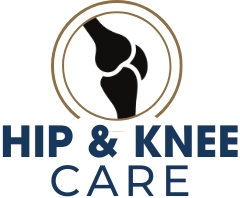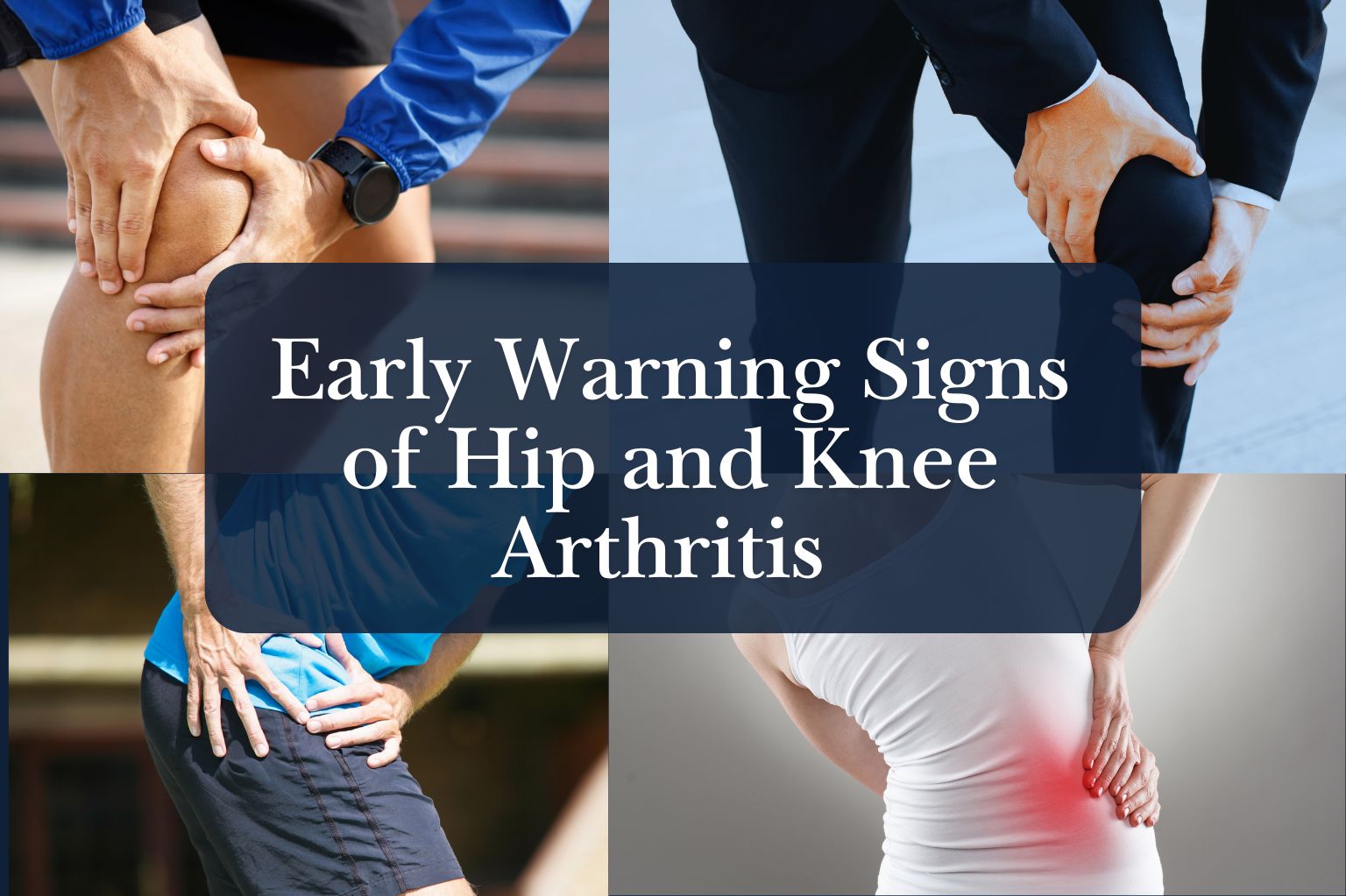Learn the early warning signs of hip and knee arthritis. Understand symptoms, causes, and treatment options. Get expert advice from Dr Amir Azam, specialist orthopaedic surgeon.
Arthritis is one of the most common causes of chronic joint pain, especially in the hips and knees. It doesn’t happen overnight — most patients experience subtle symptoms that gradually worsen over time. The earlier you notice these signs, the better your chances of slowing progression and managing pain effectively.
Early Warning Signs of Hip and Knee Arthritis
In this blog, we’ll discuss the early warning signs of hip and knee arthritis, why they matter, and when to see a specialist.
What is Arthritis of the Hip and Knee?
Arthritis refers to inflammation and damage of the joint cartilage. Over time, this leads to stiffness, swelling, and difficulty moving. The most common type is osteoarthritis, which results from wear and tear. Other forms include rheumatoid arthritis and post-traumatic arthritis.
The hips and knees are weight-bearing joints, so they’re particularly prone to arthritis.
Early Signs You Shouldn’t Ignore
- Persistent Joint Pain
Pain that lingers beyond normal fatigue or minor injuries is often the first sign. In osteoarthritis, pain may be worse in the night or after periods of inactivity. - Stiffness
Difficulty getting out of bed or needing extra time to “loosen up” after sitting can be an early red flag. - Swelling Around the Joints
Inflammation often causes visible swelling or a sensation of warmth in the hip or knee area. - Grinding or Popping Sounds
If you hear or feel grinding (crepitus) while moving your knee or hip, it may indicate cartilage wear. - Reduced Range of Motion
Struggling to fully bend or straighten your knee, or difficulty rotating your hip, is a sign of joint changes. - Weakness or Instability
Some patients describe their knee “giving way” or feeling unstable.
Why Early Detection Matters
- Slows Progression – Early treatment can delay joint deterioration.
- Improves Quality of Life – Pain control and mobility exercises make daily activities easier.
- Avoids Major Surgery (for now) – Non-surgical treatments may prevent or delay the need for joint replacement.
When to See a Specialist
See your doctor if:
- Persistent pain or stiffness are affecting your quality of life.
- Daily activities like climbing stairs or walking are affected.
- Over-the-counter medications no longer help.
Early evaluation can save years of discomfort and help maintain an active lifestyle.
Treatment Options
- Lifestyle Changes – Weight management, low-impact exercise, and proper footwear.
- Physical Therapy – To improve flexibility and strengthen supporting muscles.
- Medications – Pain killers and anti-inflammatory medications.
- Injections – Corticosteroids or hyaluronic acid can provide temporary relief.
- Surgery – In advanced cases, partial or total joint replacement may be recommended.
FAQs
Q1: Can arthritis be reversed if caught early?
No, arthritis can’t be reversed, but early management can slow progression and reduce symptoms.
Q2: Is joint pain always arthritis?
Not always. Joint pain can be caused by injury, bursitis, or tendonitis. A proper diagnosis is essential.
Q3: How do I know if my arthritis is worsening?
Increasing pain, swelling, or inability to perform daily tasks are signs that arthritis may be progressing.
Q4: Should I avoid exercise if I have arthritis?
No. The right kind of exercise, like swimming or cycling, can strengthen joints and reduce stiffness.
Final Thoughts
Arthritis of the hip and knee often starts silently, but the signs are there if you pay attention. Don’t ignore persistent pain, stiffness, or swelling. The earlier you consult an orthopaedic specialist, the more treatment options you’ll have.
Don’t let hip or knee arthritis shape your future – the best time to take action is now.
Struggling with Hip or Knee Pain?
Hi, I am Dr Amir Azam, a Consultant Hip and Knee Surgeon in North Wales.
I help people regain mobility and live pain-free lives through advanced hip and knee surgery. I specialise in hip replacement, knee replacement, and revision surgery (re-do surgery for failed hip and knee replacements), offering care across both the NHS (National Health Service) and private practice. With years of experience in hip and knee surgery, my focus is on providing safe, effective, and personalised treatment for every patient.
I am also registered with leading private medical insurers, including AXA Health, BUPA, Vitality Health, WPA, Aviva, Cigna, Allianz Partners, and Healix Health Services Ltd, enabling seamless access to private orthopaedic care for insured patients.
Book your consultation today and take the first step towards safe and effective recovery.
Your recovery journey doesn’t end here, and neither do my insights. I share fresh updates on LinkedIn, where we can connect directly.
Prefer short, practical tips? You’ll find those on my my Instagram and X (Twitter).
Whether you’re a patient seeking trusted care, a healthcare professional looking for collaboration, or a journalist seeking expert medical insights, I’d be glad to connect.
For appointments or any other enquiries, please email secretary@dramirazam.com.
Dr Amir Azam
Consultant Orthopaedic Surgeon
MBBS, MS (Orth), MRCS, FRCS (Orth)

